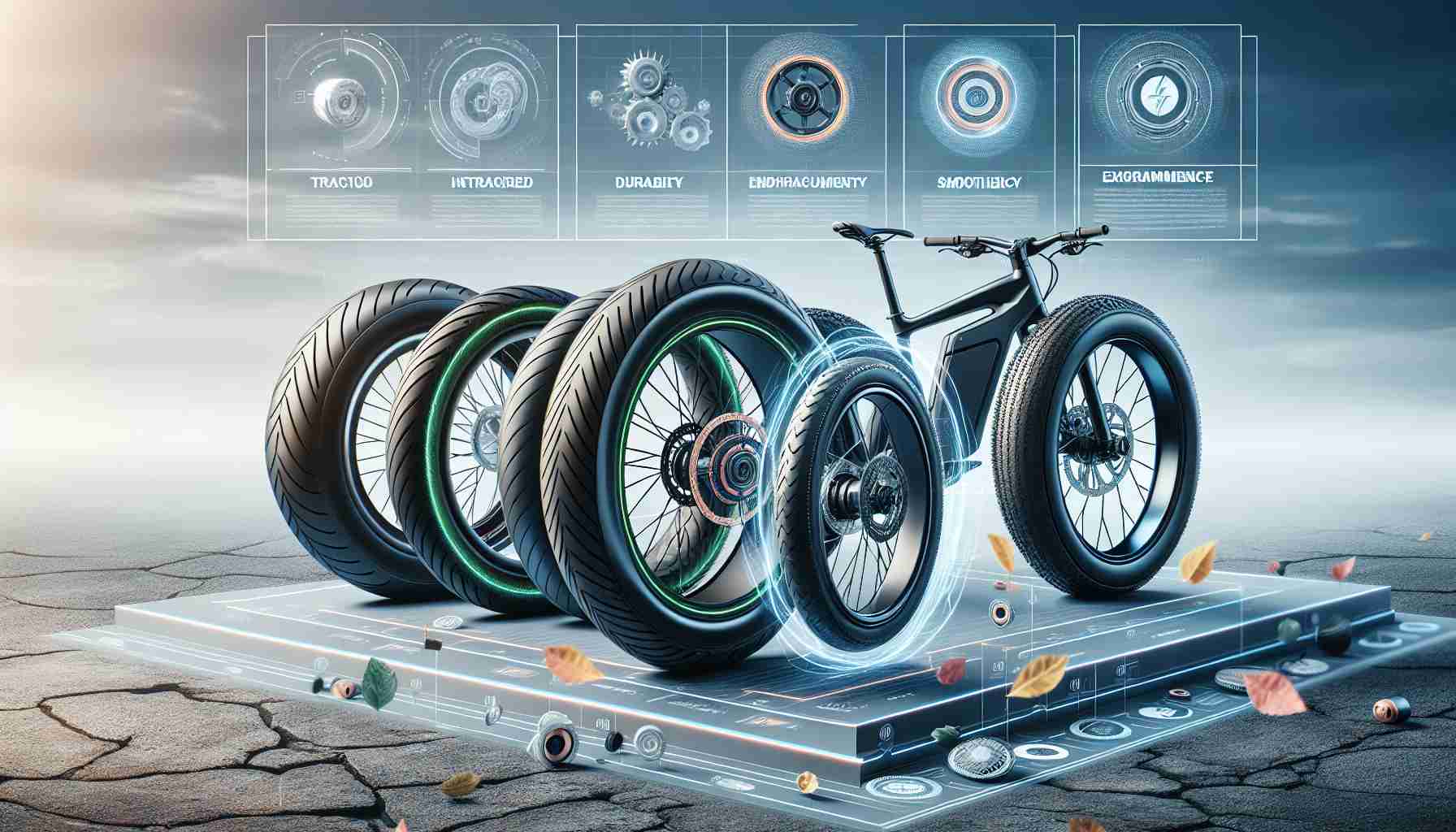Electric bike tires are designed to withstand the increased power, weight, and speed of e-bikes. While they may seem like a niche product, tire makers are offering an expanding range of options specifically designed for electric bikes or labeled as compatible with them.
One of the main reasons for using electric bike tires is the heavier load and higher torque that e-bikes generate. The presence of a motor means there is much more torque transmitted through the tire, requiring increased grip to prevent traction loss and skidding. Additionally, the increased torque can lead to faster wear and higher risk of tire damage, especially when riding on technical terrains.
Another factor to consider is the higher speeds that can be achieved with an electric bike. Whether you’re riding off-road or on hilly routes, the average speed will likely be higher than that of a traditional bike. Electric bike tires are designed with rubber compounds that can match these speeds, providing better handling and stability. They also feature sidewalls that can handle the increased force during cornering and braking.
The weight of an e-bike, due to the motor and battery, has implications for the tires as well. Electric bike tires are constructed to support the additional weight and often require slightly higher tire pressures. These tires may also have added puncture protection to decrease the chance of damage.
Overall, using electric bike tires can offer numerous benefits, including improved grip, acceleration, and stopping power. They are specifically designed to handle the unique demands of e-bikes and can provide a longer lifespan compared to standard tires. Additionally, pairing an electric bike tire with a foam insert can further reduce the risk of damage and offer ride-flat capabilities.
While the ideal tire pressure varies depending on factors such as tire width, intended use, and road conditions, it is generally recommended to run higher pressures in electric bike tires to accommodate the increased weight and power of the bike.
In conclusion, upgrading to electric bike tires can greatly enhance your riding experience, providing better performance and increased durability. With a wide range of options available, it’s worth considering these specialized tires for your e-bike.
The electric bike industry has been experiencing significant growth in recent years. According to a report by Research and Markets, the global electric bike market is projected to reach $38.6 billion by 2025, experiencing a compound annual growth rate of 7.9% during the forecast period. The increasing popularity of e-bikes can be attributed to factors such as rising environmental concerns, government initiatives promoting electric transportation, and the desire for a more active lifestyle.
One of the key drivers of the electric bike market is the increasing demand for eco-friendly transportation solutions. With growing concerns about air pollution and global warming, many individuals are switching to electric bikes as a more sustainable alternative to traditional vehicles. Electric bikes emit fewer greenhouse gas emissions and consume less energy compared to cars or motorcycles. Furthermore, the development of advanced battery technologies has improved the range and performance of electric bikes, making them a viable mode of transportation for commuting and leisure activities.
Another factor driving the growth of the electric bike industry is the rising trend of e-bike sharing services. As urban areas become more congested and parking spaces become scarce, many cities are introducing e-bike sharing programs to solve the last-mile transportation problem. These programs allow individuals to rent electric bikes for short journeys, providing a convenient and efficient means of getting around the city. With the increasing adoption of e-bike sharing services, the demand for electric bikes and related accessories, including specialized tires, is expected to witness substantial growth.
However, the electric bike industry also faces several challenges. One of the main concerns is the lack of standardized regulations governing electric bikes. Different countries and regions have varying rules and regulations regarding the use of electric bikes, including speed limits, power output restrictions, and age limits. This lack of uniform regulations can create confusion among consumers and hinder the wider adoption of electric bikes.
Another issue faced by the industry is the high cost of electric bikes compared to traditional bicycles. The inclusion of a motor and battery significantly increases the manufacturing cost of e-bikes, making them less affordable for some consumers. However, as technology continues to advance and economies of scale are achieved, it is expected that the cost of electric bikes will gradually decrease, making them more accessible to a wider range of consumers.
In addition, the maintenance and repair of electric bikes, including replacing tires, can be more complex and expensive compared to traditional bicycles. The specialized components and electronics of e-bikes require trained technicians and specialized tools for proper servicing. This can be a challenge for individuals who may not have easy access to e-bike service centers or qualified technicians.
To address these issues, companies in the electric bike industry are continuously innovating and improving their products. Tire manufacturers, for example, are developing new tire technologies specifically designed for the unique requirements of electric bikes. These specialized tires offer features such as increased grip, puncture protection, and higher load capacities to ensure optimal performance and safety.
Overall, the electric bike industry is poised for significant growth in the coming years. As consumers become more environmentally conscious and cities adopt sustainable transportation solutions, the demand for electric bikes and related accessories, including specialized tires, is expected to rise. With ongoing advancements in technology and increasing competition in the market, electric bike tires will continue to evolve, offering improved performance and durability for e-bike riders.






















